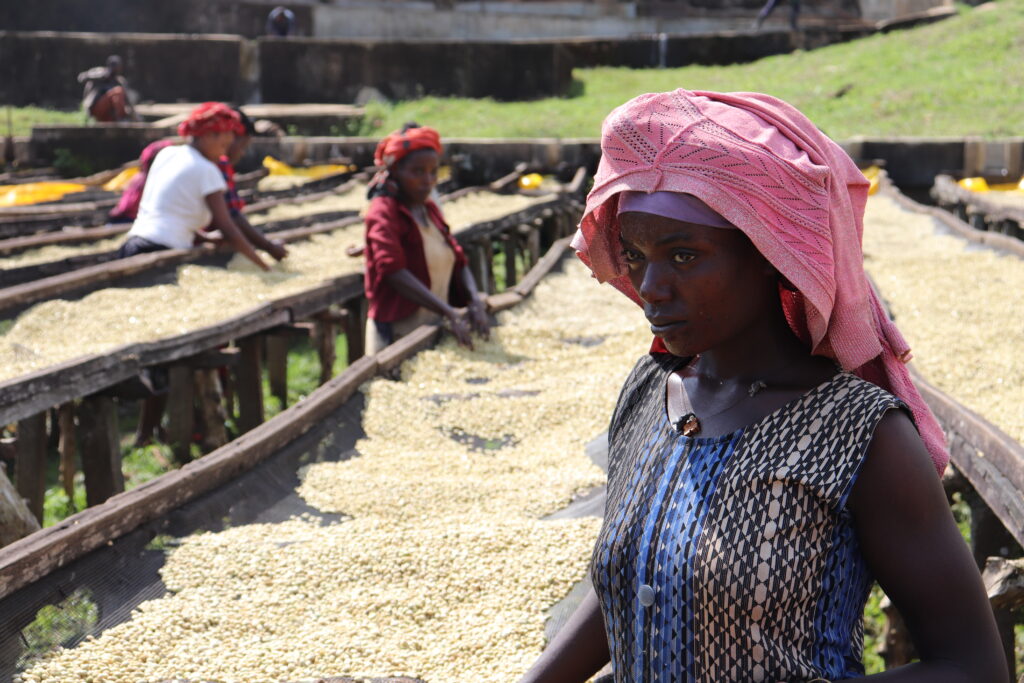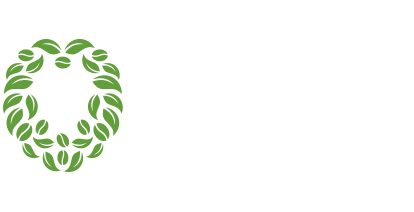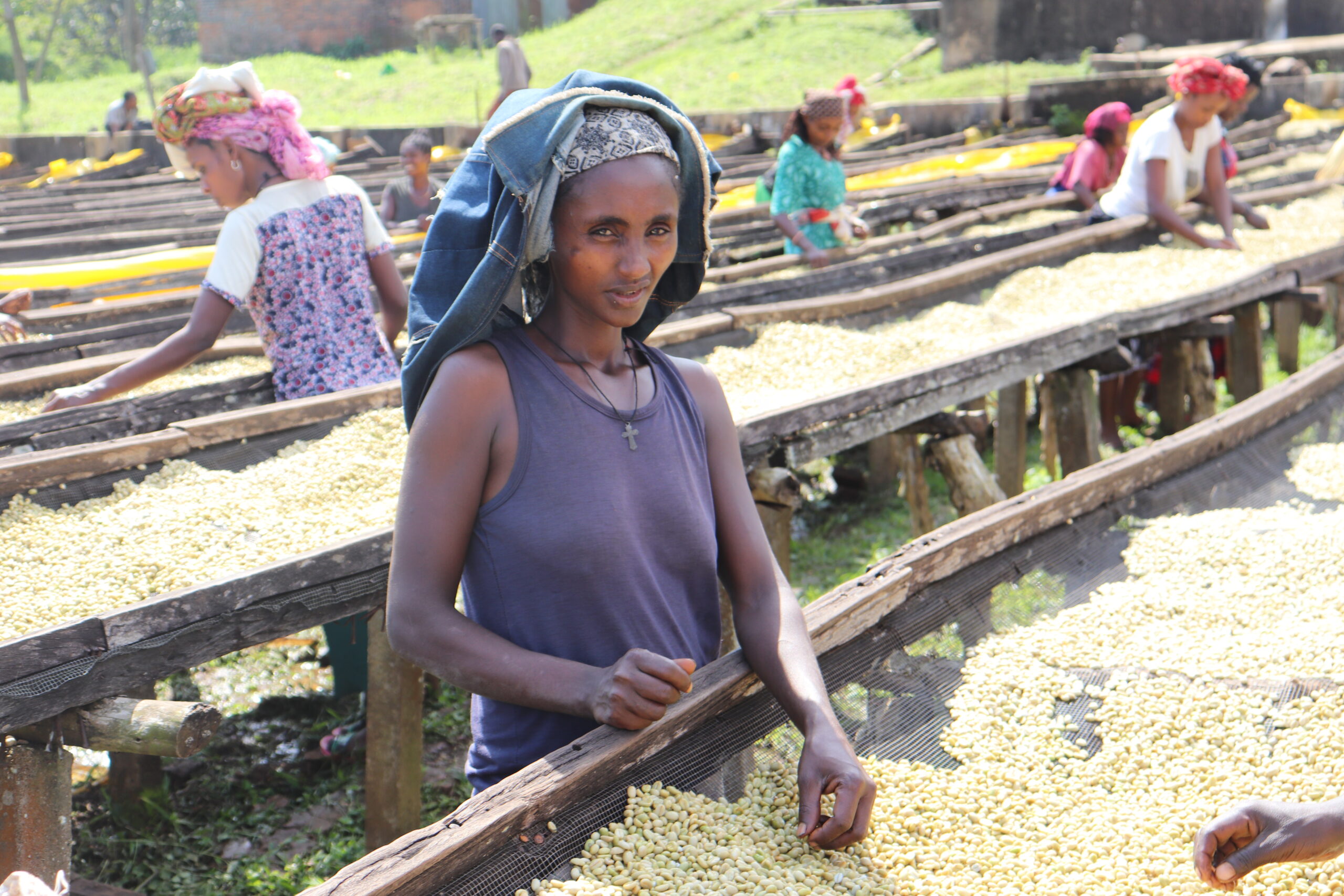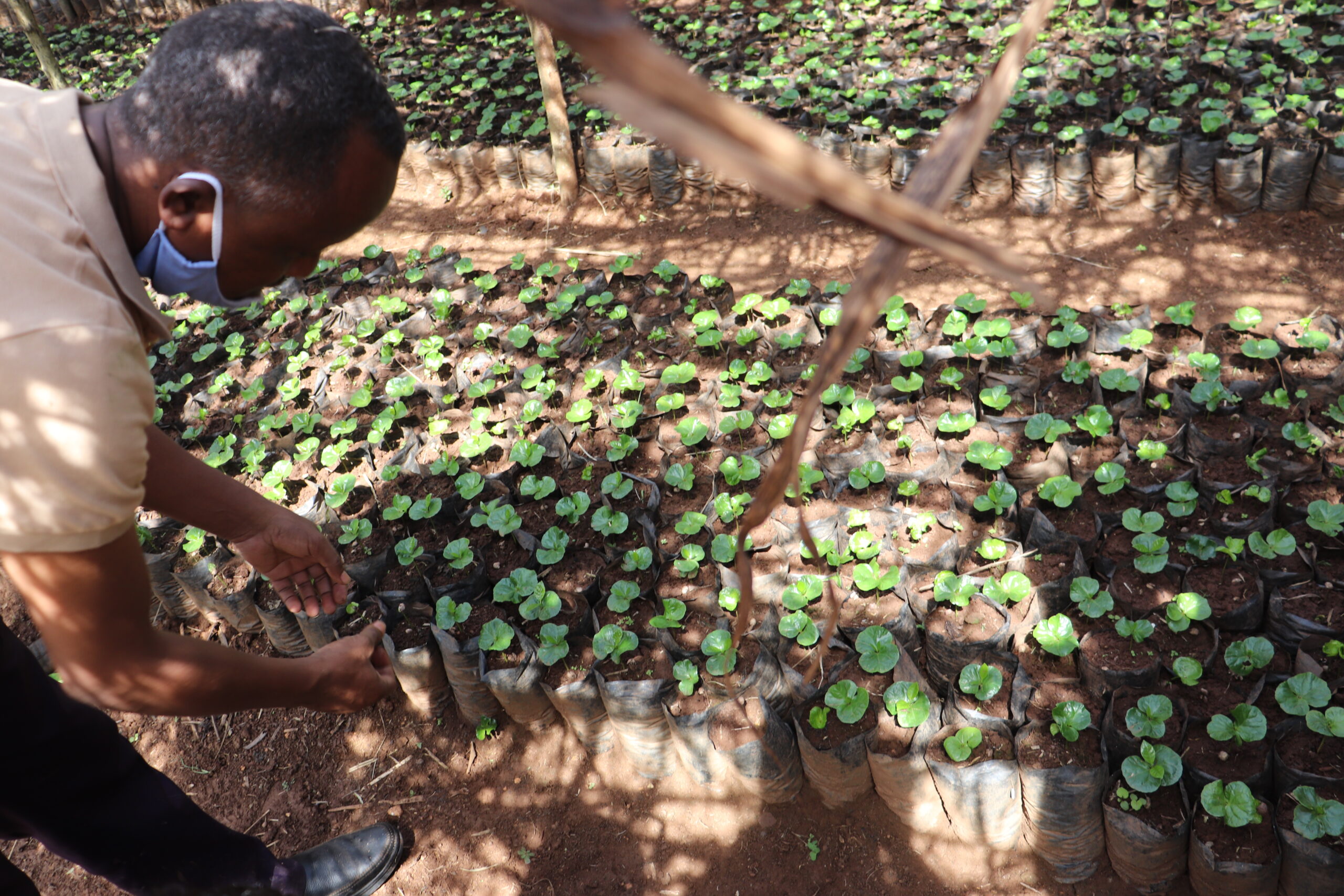
Details
Region: Southern Nations, Nationalities, and People’s Region (SNNPR)
Zone: Sheka
Woreda: Masha
Altitude: 1,650-1,950 meters above sea level
Owner: Ethio Agri Ceft
Process: Washed
Varietal: Ethiopian Heirloom
Screen Size: 14+
Bag Weight: 60kg
Grain Pro: Of course!
Cupping Notes
Aroma: Floral and citrus
Flavor: Peach fruit with intense jasmine
Body: Light and juicy
Acidity: Fruity yet delicate
Certifications: Rain Forest Alliance; UTZ
The People.
The Duyina Coffee Farm employs approximately 435 seasonal workers from the local community. The majority of locals are aware of the harvest season and will actively come well in advance to secure their jobs. The farm also puts out calls for employement through radio and tv advertisements.
Along with market wages, workers are provided benefit packages which include free accommodations with electricity, meals, insurance and free medical services along with access to an on-site medical facility.
The owners, Ethio Agri Ceft, place enormous emphasis on corporate social responsiblity through undertaking various initatives including:
- Distributing coffee seedlings to local farmers
- Donation of eductional material & stationary (textbooks, pencils, papers, etc.)
- Formation of a COVID-19 assesment & protection team for the woreda
- Montery contributions to local economy to help bolster the infrastructure, security and for the creation of shelters for the homeless & refugees.
The Sheka zone where the farm is located has a population of over 200,000. The four largest ethnic groups are reported to be the Shakacho (32%), the Amhara (22%), the Kafficho (20%) and the Oromo (7.00%). Ethiopia has over 80 ethinicities so it can be hard to keep track of them all!
The Process.
All coffee from Duyina is grown directly on the farm (i.e. not an outgrower scheme). The cherries are selectively handpicked by employees before being bagged and transported to the pulping station.
Once the coffee arrives at the mill, it is sorted and cleaned to remove the over & under ripe cherries, along with any stones, dirt and debris. Sieves are used to seperate cherries which are mature/immature and large/small.
After sorting, the coffees dedicated for the washed process are placed into a demucilager which not only removes the cherry skin, but also washes the coffee. This process takes approximately 24-36 hours and is extremely eneregy-efficient as opposed to the traditional water fermentation tanks. Once the coffees are finished their bath, they are dried in an artificial dryer which reduces the moisture to no more than 12.5%. While the traditional method of sun drying can take between 8-10 days, the artificial dryers get the job done in just 36 hours! The coffee beans are continuously tested while drying with a moisture tester to ensure they are not overdried. The parchment is then bagged and transported to Addis Ababa to be sold.
For their natural/sundried coffees, once they are sorted, they are immediately spread out in thin layers on raised drying beds. To avoid mould, fermentation or rotting, the cherries are turned 4-6 times per day. The drying process for natural coffees can take up to 10-16 days depending on the temperature and intensity of the sunlight. During the process, the cherries will shrink in size and the outer skin will eventually become rock hard. By using a moisture tester, the workers are able to tell when the coffee bean inside the cherries have reached the appropriate level of moisture. Once they are ready, they are sent through the demucilager (with no water) to remove the cherry skin. The parchment is then bagged and transported to Addis Ababa to be sold.



